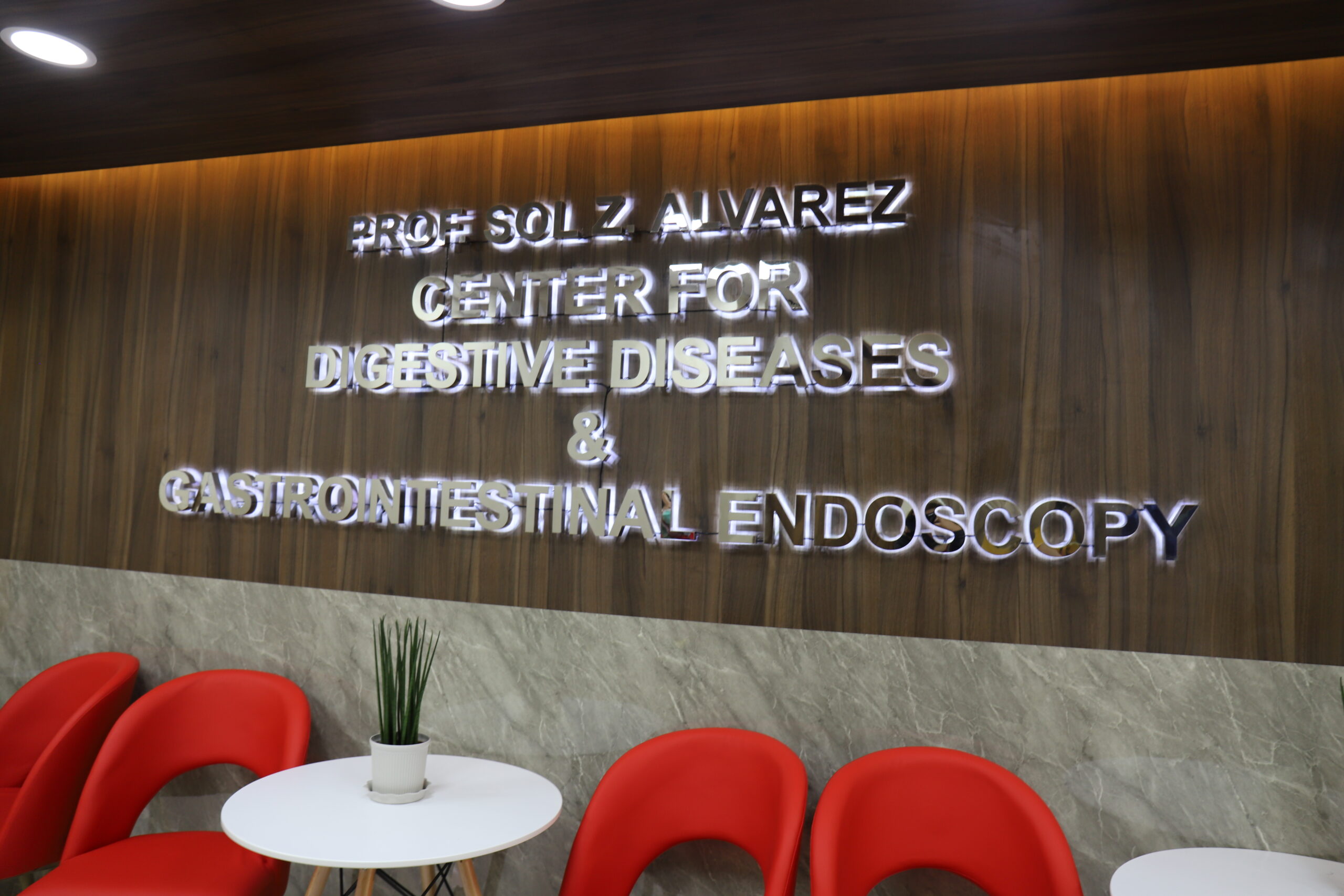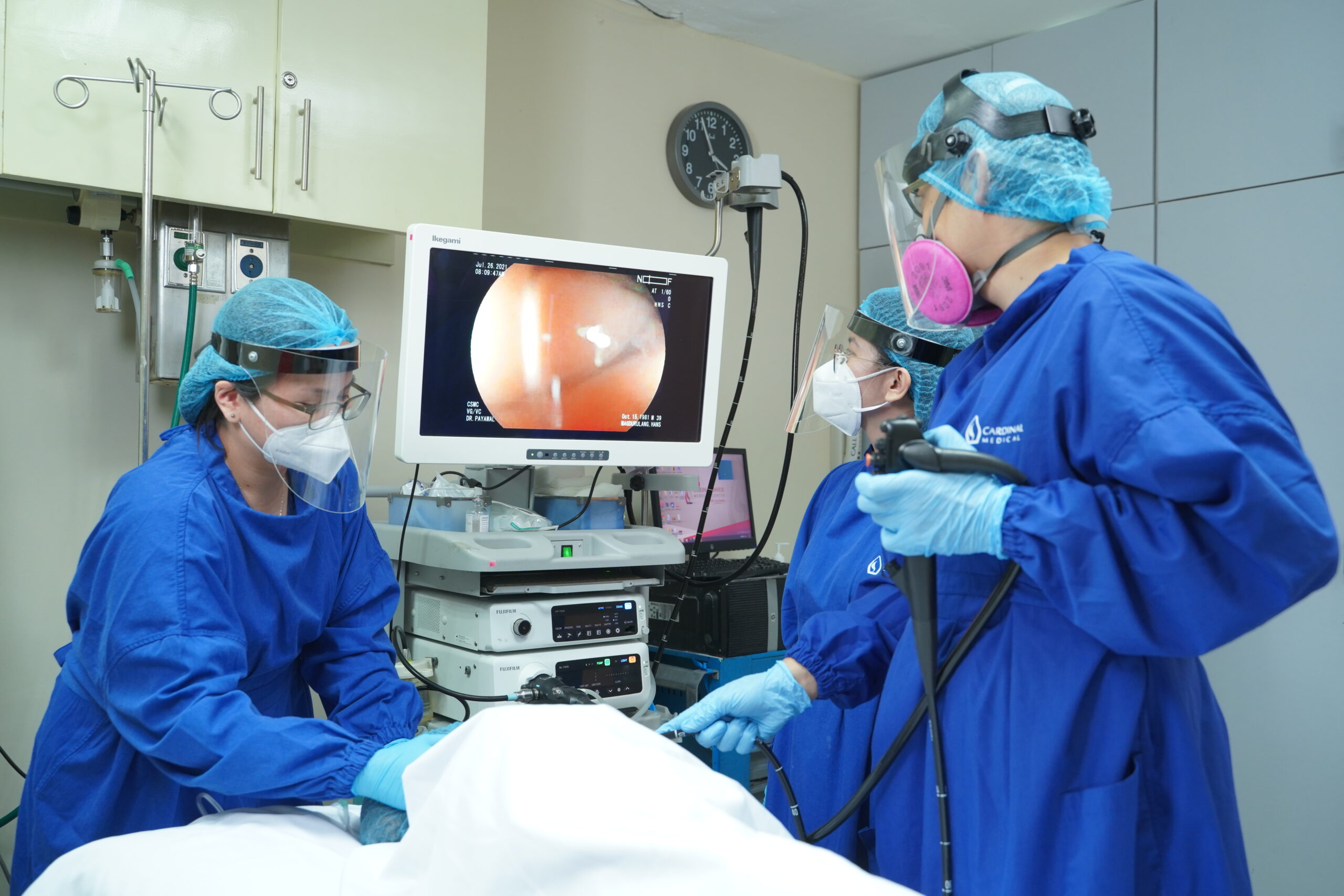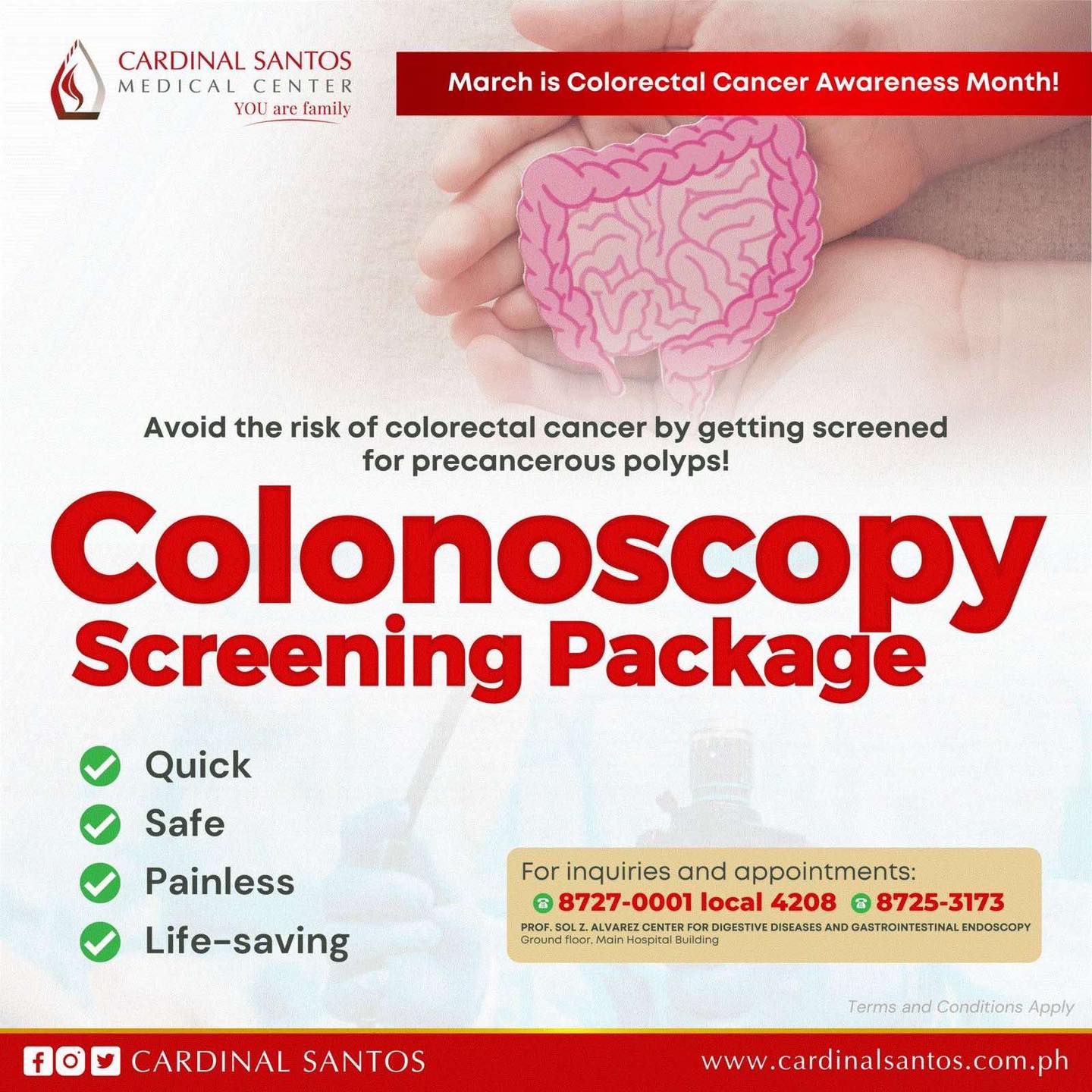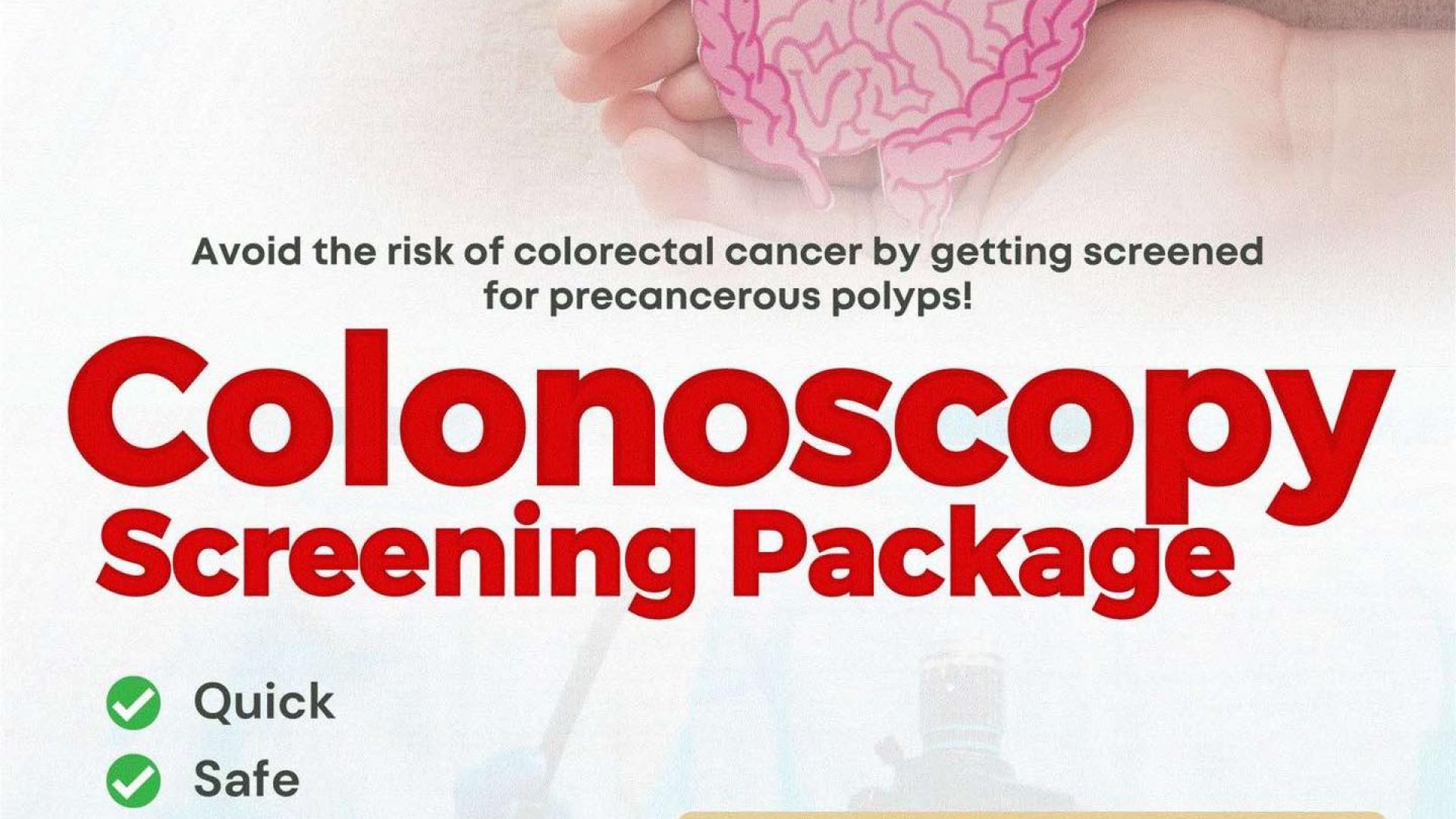Cancer is listed as one of the top causes of death in the Philippines, ranking only third below cardiovascular and cerebrovascular diseases.[1] But did you know that colon cancer is the second most prevalent cancer in the Philippines?[2]
“We’re aware of all these cancers, breast cancer of course is the most prevalent, then we have lung cancer, reproductive cancers like cervical, ovarian, and prostate cancer. However, colon cancer is actually more common than we think,” said Cardinal Santos Medical Center’s (CSMC) resident oncologist, Dr. Kristine Monte.

Colon cancer begins in the large intestine, when abnormal cell growths or polyps start to multiply in the colon lining and rectum. Like most cancers, when left untreated, colon cancer can spread to other parts of the body.[3]
“Colon cancer can affect anyone, of any gender and any age,” said Monte. “Even if you have no family history of colon cancer, you may still be at risk of developing it if you’re prone to excessive drinking and smoking, consuming too much processed foods and red meat, are overweight or obese or have Type 2 diabetes.”
This Colorectal Cancer Awareness Month, CSMC recently held a lay forum on colon cancer focused on dispelling myths surrounding the illness and spreading awareness of the importance of regular screening to the public.
To prevent the onset of colon cancer, Monte recommends making the right changes to one’s lifestyle. “It’s important to maintain a normal weight and avoid becoming overweight or obese,” she said. “Reduce consumption of red meat such as pork and beef and high fat foods such as deep-fried foods or fast food. Increase intake of green leafy vegetables like pechay, lettuce, legumes and herbs and fiber-rich fruits like papaya, pineapple or mango.”

She also advised to avoid smoking and drinking too much alcohol, as well as exercising regularly. At least 20 to 30 minutes of exercise daily will already help in maintaining a healthy weight.
Finally, Monte strongly encourages patients to consult their doctor, especially if their family has a history of colon cancer or they are experiencing unusual symptoms similar to those of colon cancer, such as persistent abdominal discomfort, unexplained weight loss, change in bowel movement or rectal bleeding.
“Two of CSMC’s flagship specializations are Oncology and Gastroenterology, so it’s safe to say that we are very much invested in your colorectal health,” Monte shared. “We offer a variety of services, such as the standard Colonoscopy, and we are very proud of the world-class facilities and expert clinicians we have in-house.”

Colonoscopy is a recommended method of detecting colon cancer. It helps doctors identify and diagnose colorectal cancers early on, which in turn, helps reduce cancer deaths and reduce the suffering experienced by patients. It is advised that patients start regular colorectal cancer screening by the age of 50 and get Fecal Immunohistochemical Testing every year.
Other tests, like the Flexible Sigmoidoscopy, CT Colonography, and Double Contrast Barium Enema should be done every five years, and Colonoscopies should be conducted every 10 years.
“Colon cancer is very much preventable if medical providers are able to catch and treat it immediately,” stressed Monte. “That’s why it’s so important to encourage regular screening for colon cancer.”
For more information about the programs and services that CSMC offers, please visit https://cardinalsantos.com.ph/. CSMC is also on Facebook, like and follow them at www.facebook.com/CardinalSantos.
[1] https://psa.gov.ph/content/2022-causes-deaths-philippines-preliminary-31-october-2022
[2] https://careph.org/wp-content/uploads/2022/05/2021-CARE-PH-Annual-Report_Final_1648546489.pdf
[3] https://my.clevelandclinic.org/health/diseases/14501-colorectal-colon-cancer



